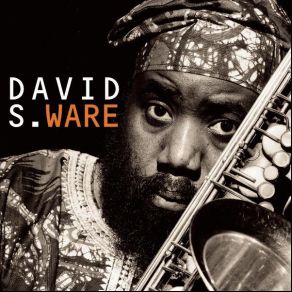Go See the World
Download links and information about Go See the World by David S. Ware. This album was released in 1998 and it belongs to Jazz, Avant Garde Jazz, Avant Garde Metal genres. It contains 7 tracks with total duration of 01:07:41 minutes.

|
|
|---|---|
| Artist: | David S. Ware |
| Release date: | 1998 |
| Genre: | Jazz, Avant Garde Jazz, Avant Garde Metal |
| Tracks: | 7 |
| Duration: | 01:07:41 |
| Buy it NOW at: | |
| Buy on iTunes $9.99 | |
| Buy on Amazon $9.99 | |
Tracks
[Edit]| No. | Title | Length |
|---|---|---|
| 1. | Mikuro's Blues | 6:04 |
| 2. | Lexicon | 10:22 |
| 3. | Logistic | 9:51 |
| 4. | The Way We Were | 14:34 |
| 5. | Quadrahex | 4:42 |
| 6. | Estheticmetric | 11:30 |
| 7. | Rapturelodic | 10:38 |
Details
[Edit]David S. Ware's debut album on Columbia Records proper (Columbia had licensed an earlier title from DIW) is perhaps the most "accessible" of his career thus far, which doesn't mean to insinuate it's smooth jazz or anything that resembles the music of Wynton Marsalis, either. This is out jazz, but it's not necessarily free jazz. The tunes Ware and his truly amazing band — Susie Ibarra, drums; William Parker, bass; Matthew Shipp, piano — have constructed for this date are elaborate studies in tonality, harmonic invention, and reconstructions of melodic identity as it presents itself in the jazz idiom. According to guitarist and frequent Ware and Shipp collaborator, Ware uses music to mark time, its passage, and significance as a creative element in and of itself. Go See the World takes to the challenge head-on. From the opening moments of Ware's bleating dissonance on "Mikuro's Blues," where he and Ibarra call into question the very invention of dynamic interplay — held down on earth by Shipp's steady, shape-shifting modal chords and Parker's dancing bassline that always seems to know where it is no matter where the fire is — and look to lift each other up with tempo changes, color shifts, timbral variations, and an all out attack on the tune's theme. On "Logistic," Shipp and Parker go toe to toe in an improvised workout that has them trading places in the rhythm section as Ibarra attempts to further their discussion in triple time. Ware takes the tune out with three trills that replace a melody that long ago dropped from sight. The hinge of the entire album is "The Way We Were" (yeah, the Marvin Hamlisch tune), where Coltrane's microphonic modalism meets Shipp's polytonal architecture of scale and Parker's scalar framework for a sonic exploration of gargantuan expanse. The skittering skeins of notes and chords Shipp lays down for the ballad have Ware dropping every tonal shade he can come up with on them, as Ibarra sends time to the bathroom for a break. The original melody slithers back in the window as a modal blues in Ware's brilliant, soulful grunt and wail. You can hear all the melancholic nostalgia in the world in his playing, which in itself resists the feeling as if it were the deadliest thing on earth. Ware is looking for alchemical transformation with his band, to take what was once sickly sweet and syrupy and make of it a vital force for change both musical and social. This tests the notion of interpreting standards to the breaking point and shatters them with a battering ram. I can see Barbara Streisand choking on this as if it were broken glass in her throat, yet she could not deny with her dying breath (nor could Hamlisch) the reinvention of the tune through a lyricism so pure it has been purged of false emotion and looks back only as a reference point for going further. Into what is what cannot be known, but further is both the question and the answer. Ware has gone and seen the world, and he's found it heartbreakingly beautiful, able to be understood only by the utterance of music.